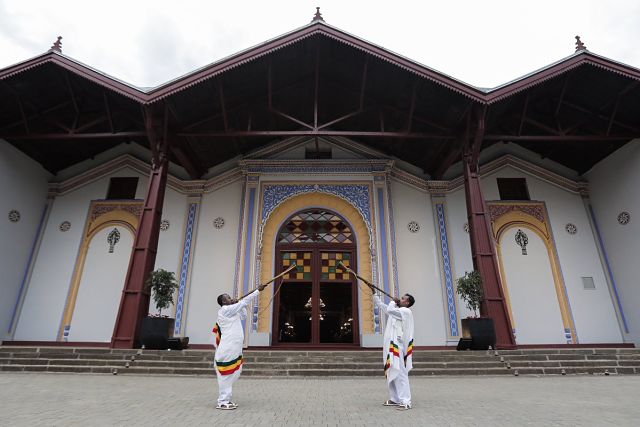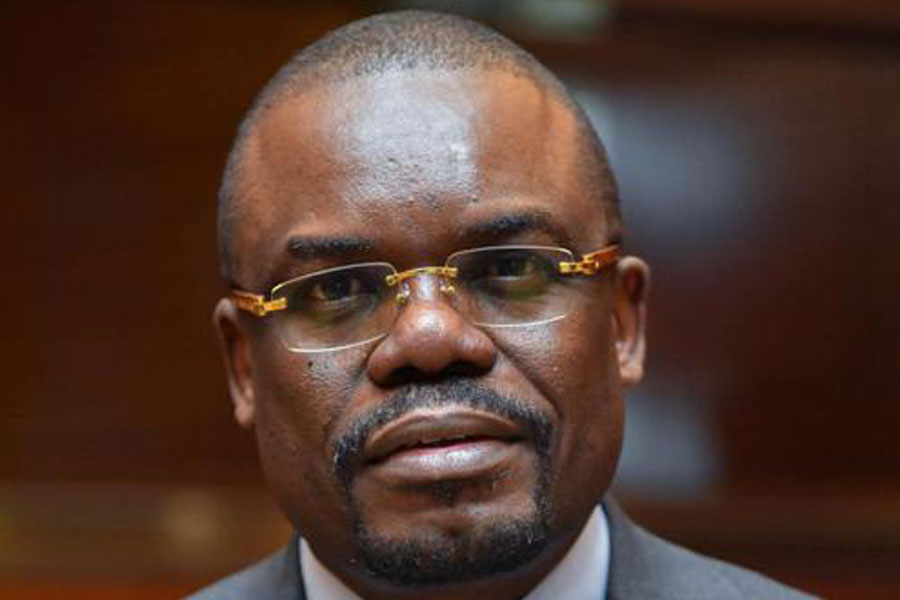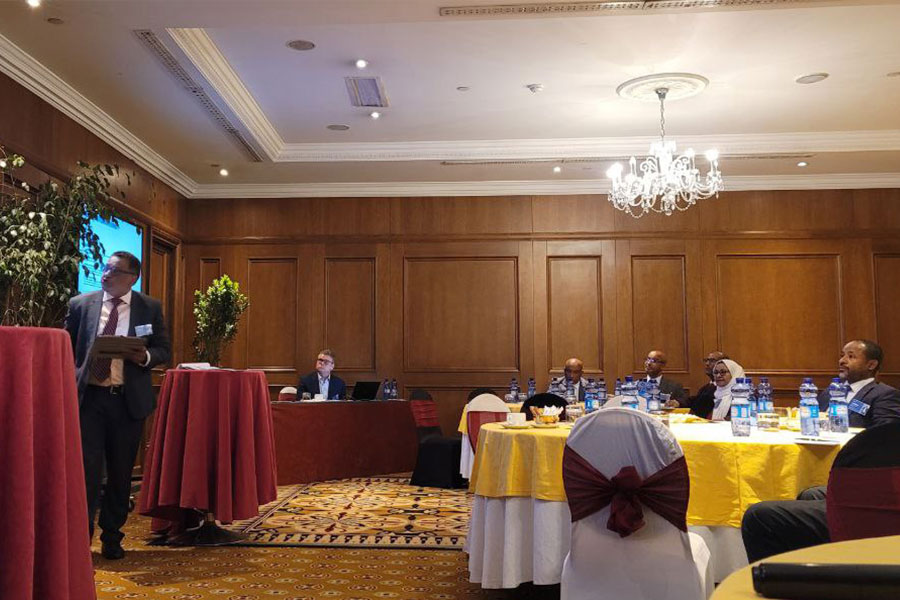
My Opinion | Jun 22,2024
Apr 13 , 2024
By Hintsa Andebrhan
The Comprehensive Tripartite Cooperation agreement, signed in September 2018 in Asmera between Eritrea, Ethiopia, and Somalia leaders, was noteworthy in many ways. Signed with the aspiration of engendering a durable peace in the region, it promised to fortify ties and promote cooperation across various political, economic, social, cultural, and security issues. It proved particularly striking when Ethiopia faced heightened pressure from Western countries, notably the United States, over its internal conflicts.
The diaspora communities from Eritrea and Somalia supported the Ethiopian government during this period. They actively participated in large-scale peaceful protests organised by the Ethiopian diaspora in various Western countries. The rallying cry "Hands Off from Ethiopian Affairs" galvanised these protests, a sentiment that echoed a collective opposition against what was perceived as foreign interference.
Neither was the diplomatic solidarity unpalpable, with the incumbent Minister of Foreign Affairs, Taye Atskeselassie, then Ethiopia's ambassador to the UN, acknowledging the support of Eritrean and Somali missions during Ethiopia's times of need. The diplomatic effort, described by some as "victory diplomacy," was crucial in steering the international stormy waters Ethiopia found itself in at the time.
The unity the tripartite agreement ignited also manifested digitally through a campaign spearheaded by figures such as Simon Tesfamariam, an Eritrean-American, and Hermela Aregawi, an Ethiopian-American with over a decade of experience in the media. The campaign, which used the hashtag "No More" on social media platforms like X (formerly Twitter), was a direct outcome of the girded ties under the agreement, countering what they perceived as undue Western influence over Ethiopia's sovereignty.
However, the initial promise of cooperation heralded by the Asmera agreement appears to be eroding. Critics point to the influence of Western policies, particularly those from the White House, as a destabilising force in the region. The current involvement of the United Arab Emirates (UAE) in the Horn of Africa is viewed by some as a continuation of these disruptive external influences, purportedly supported by Washington.
The UAE's policies, particularly in crisis-stricken Sudan, have drawn scrutiny. The Gulf nation has been blamed for exacerbating the conflict, supplying military weapons and logistics to the Rapid Support Forces (RFS), and contributing to civilian casualties. Despite the gravity of these allegations, there has been a notable absence of condemnation from major international actors, including the United States, the United Nations, and the Arab League.
In contrast, the African Union (AU) has taken a firmer position in other regional matters, such as suspending Sudan from its activities in response to internal conflicts. Yet, its silence over the UAE’s involvement in the Horn of Africa has been conspicuous, raising questions about its consistency and the geopolitical influences at play.
However, UAE's political ploy extends beyond Sudan. There is growing concern that the Emirates is promoting division in Somalia, engaging politically with leaders from Somaliland and Puntland amid their tensions with Mogadishu. Such actions are perceived as part of a broader strategy by the UAE to ensure the Horn of Africa is under its sphere of influence, serving its political and economic interests, which could include control over key ports, logistics, and mining operations.
The strategy is mirrored in the UAE's dealings across the region, including its involvement in Yemen. The Emirates has facilitated military operations against Yemen by allowing US and British warplanes to launch strikes from an airbase near Abu Dhabi — a policy that contrasts with the more cautious approach taken by Saudi Arabia. Jeddah appears wary of jeopardising its renewed diplomatic ties with Iran amidst the ongoing Yemeni crisis.
The geopolitical ramifications of these actions are profound, potentially inciting further conflict in an already volatile region. The Gaza Strip crisis threatens to escalate tensions further, complicating the geopolitics of the Red Sea, a critical global shipping lane.
Considering this, there are calls for the UAE's current leaders to recall the legacy of Zayed bin Sultan Al Nahyan (Sheikh), the country's founding father. Known for visionary leadership and wisdom, his philosophy emphasised the value of human worth over material wealth and the importance of regional stability and cooperation. Indeed, lasting wealth and security come not from dominion over strategic ports or resources but through promoting genuine partnerships that prioritise the well-being and aspirations of the region's people.
PUBLISHED ON
Apr 13,2024 [ VOL
25 , NO
1250]


My Opinion | Jun 22,2024

Fortune News | Jun 15,2019

Commentaries | Jun 07,2025

Viewpoints | Sep 04,2021

Radar | Feb 25,2023

Commentaries | Mar 01,2024

Sponsored Contents | Oct 24,2023

Commentaries | May 16,2020

Fortune News | Nov 19,2022

Exclusive Interviews | Feb 12,2022

My Opinion | 132038 Views | Aug 14,2021

My Opinion | 128435 Views | Aug 21,2021

My Opinion | 126362 Views | Sep 10,2021

My Opinion | 123981 Views | Aug 07,2021





Dec 22 , 2024 . By TIZITA SHEWAFERAW
Charged with transforming colossal state-owned enterprises into modern and competitiv...

Aug 18 , 2024 . By AKSAH ITALO
Although predictable Yonas Zerihun's job in the ride-hailing service is not immune to...

Jul 28 , 2024 . By TIZITA SHEWAFERAW
Unhabitual, perhaps too many, Samuel Gebreyohannes, 38, used to occasionally enjoy a couple of beers at breakfast. However, he recently swit...

Jul 13 , 2024 . By AKSAH ITALO
Investors who rely on tractors, trucks, and field vehicles for commuting, transporting commodities, and f...

Jul 12 , 2025
Political leaders and their policy advisors often promise great leaps forward, yet th...

Jul 5 , 2025
Six years ago, Ethiopia was the darling of international liberal commentators. A year...

Jun 28 , 2025
Meseret Damtie, the assertive auditor general, has never been shy about naming names...

Jun 21 , 2025
A well-worn adage says, “Budget is not destiny, but it is direction.” Examining t...

Jul 13 , 2025 . By YITBAREK GETACHEW
The Addis Abeba City Revenue Bureau has introduced a new directive set to reshape how...

Jul 13 , 2025 . By BEZAWIT HULUAGER
Addis Abeba has approved a record 350 billion Br budget for the 2025/26 fiscal year,...

Jul 13 , 2025 . By RUTH BERHANU
The Addis Abeba Revenue Bureau has scrapped a value-added tax (VAT) on unprocessed ve...

Jul 13 , 2025 . By NAHOM AYELE
Federal lawmakers have finally brought closure to a protracted and contentious tax de...